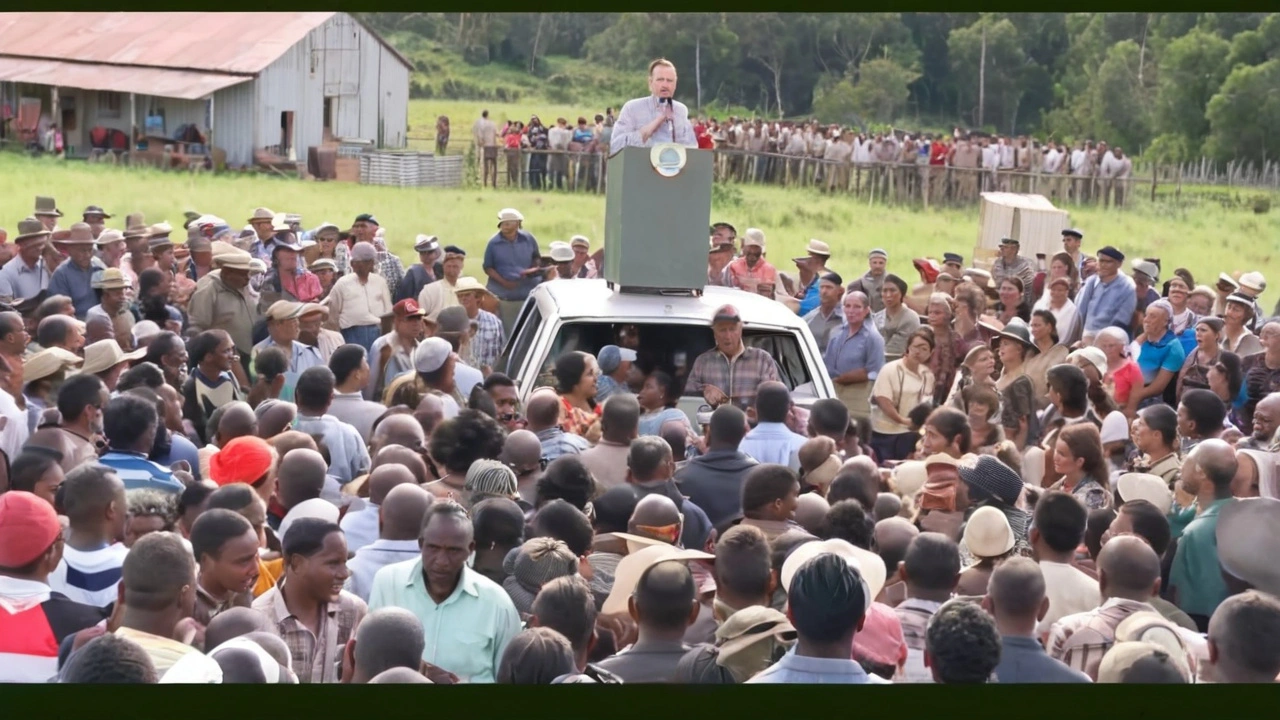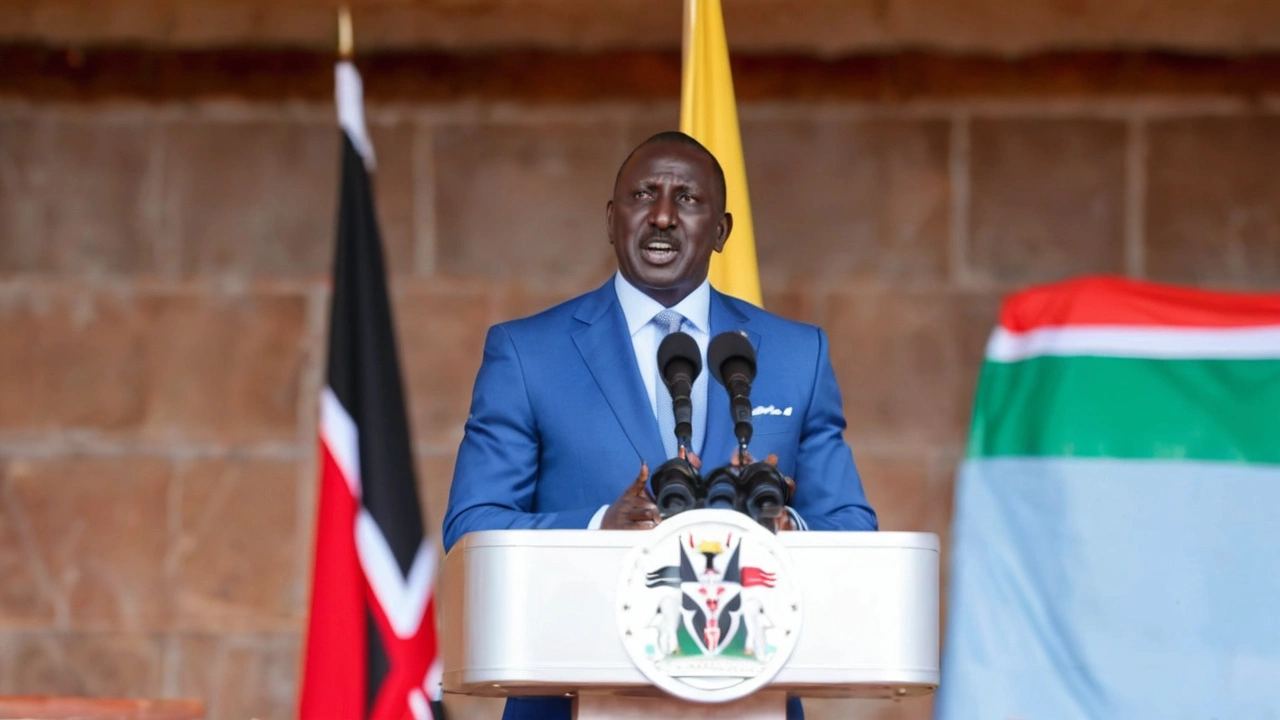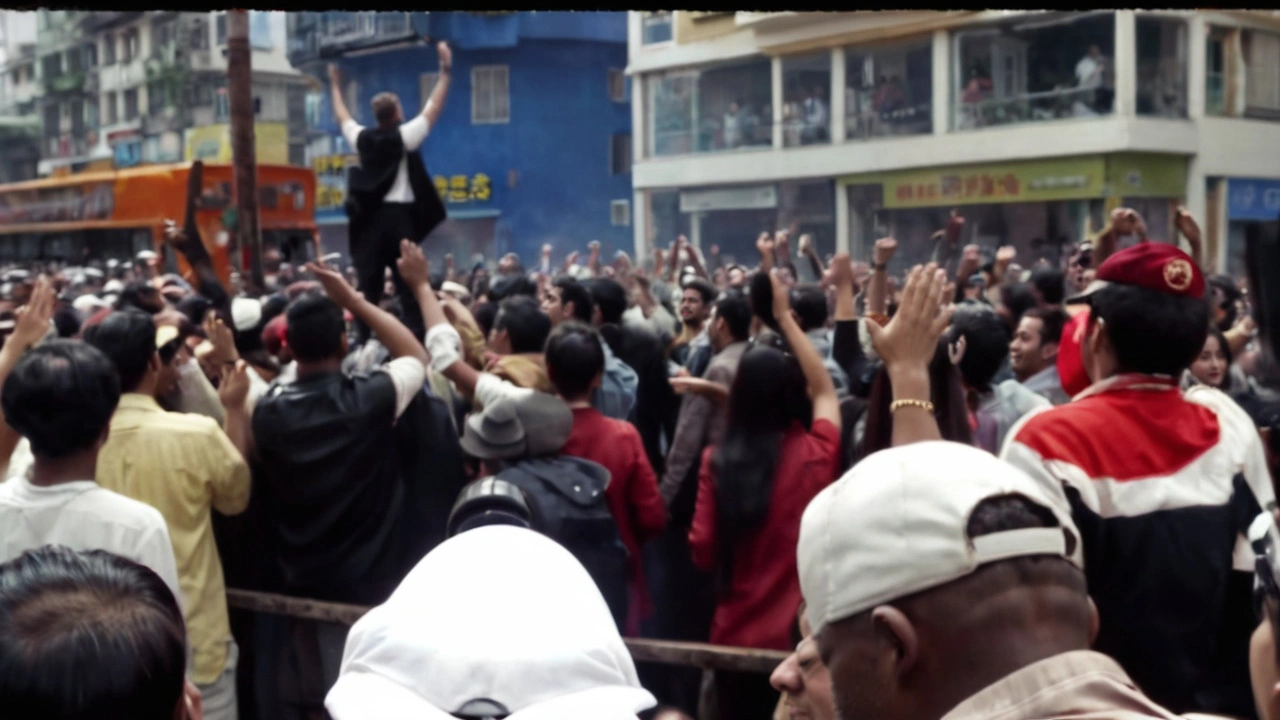President Ruto Firmly Addresses Gen Z Protests, Defends National Stability
 Jul, 22 2024
Jul, 22 2024
President Ruto Addresses the Nation Amidst Generation Z Protests
In a pressing national address, President William Ruto of Kenya has taken a firm stance against the ongoing Generation Z protests that have gripped parts of the country. His message was clear and resolute: the nation's stability, lives, and properties will be protected at all costs. Facing increasing civil unrest and resistance from Gen Z demonstrators, Ruto reiterated his administration's dedication to fostering a stable and democratic Kenya.
The wave of protests emerged out of a groundswell of discontent among the youth, particularly those of Gen Z, who have been vocal about various socio-economic issues facing the nation. In an effort to address their concerns, Ruto called for a multi-sectoral forum, inviting representatives from different sectors to engage in dialogue and find a common solution. However, this overture was met with refusal from the protesters, who expressed skepticism towards governmental efforts and perceived them as insufficient.
Concessions and Continued Unrest
President Ruto highlighted his administration's willingness to make significant concessions in an attempt to meet the demands of the protesters. Among these was the rejection of the controversial Finance Bill 2024, a legislative proposal that had sparked widespread disapproval due to its perceived impact on the already burdened populace. By dismissing the bill, the president aimed to demonstrate his commitment to listening to the grievances of the citizens.
Despite these concessions, the protests have persisted, leading Ruto to adopt a firmer tone in his recent address. He categorically stated that business as usual would not resume in a state of chaos and lawlessness. Stressing the government's primary role in safeguarding national interests, he underscored the importance of preventing mayhem and ensuring the safety of lives and property. His position reflects a broader concern for maintaining the integrity of Kenya's democracy amidst social upheaval.

Protecting Lives and Property
Ruto's emphasis on protecting lives and property highlights the delicate balance any government must maintain during times of civil unrest. While acknowledging the right to protest as a fundamental democratic principle, the president also pointed out the destructive behaviors that have occasionally accompanied the demonstrations. Looting and vandalism have marred what began as peaceful protests, prompting a more stringent response from the authorities.
The president's address served as a stern reminder to the protesters that while their voices are important, their actions must align with the norms of a stable and orderly society. He underlined the government's obligation to shield the nation from any elements that seek to instigate anarchy under the guise of protest. By drawing this line, Ruto hopes to reassert control and steer the nation back towards constructive dialogue and solutions.
A Call for Constructive Engagement
Despite his strong rhetoric, President Ruto left the door open for future dialogue. He expressed a willingness to re-engage with the protesters under the condition that they come forth with a genuine intent to participate in meaningful discussions. This approach signifies a dual strategy: maintaining law and order while still being open to addressing the legitimate concerns raised by the younger generation.
The president's call for constructive engagement is a crucial aspect of his broader strategy to quell the unrest. By encouraging dialogue, he not only aims to dissipate the current tension but also to foster a more inclusive political environment where diverse voices can be heard and addressed. This balance between firmness and openness is pivotal for restoring normalcy and ensuring the continued progress of the nation.

The Road Ahead: Ensuring a Stable Democracy
As Kenya navigates through this turbulent period, the role of leadership becomes ever more critical. President Ruto's assertion that it will not be business as usual is not merely a warning but a call to action for all stakeholders to contribute to a stable democracy. It echoes the broader need for change and the importance of addressing the root causes of discontent amongst the youth.
The Generation Z protests signify a deeper, underlying issue that goes beyond immediate legislative grievances. It points to a societal shift where younger generations demand more significant involvement in the political process and a more responsive governance structure. Addressing these demands requires a multifaceted approach that involves economic reforms, political inclusiveness, and a renewed social contract between the government and its citizens.
Conclusion: Balancing Firmness with Dialogue
In conclusion, President William Ruto's recent address underscores the tightrope that governments walk during times of civil unrest. His commitment to protecting national stability while extending a hand for dialogue reflects a nuanced strategy aimed at addressing both the symptoms and the root causes of the protests. As Kenya stands at this crossroads, the actions taken today will undoubtedly shape the future trajectory of its democracy. For Gen Z, this moment is a pivotal one, as their voices compel a national re-evaluation of priorities and governance. For Ruto, the challenge lies in navigating this landscape with a blend of firmness and openness, ensuring that Kenya emerges stronger and more cohesive in the aftermath.